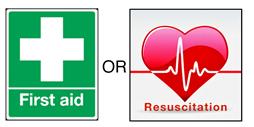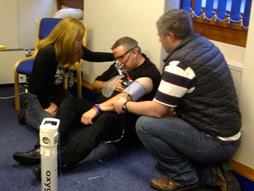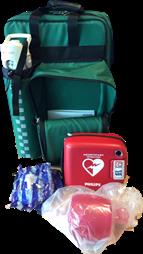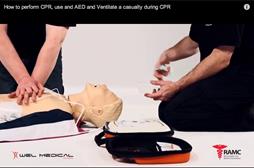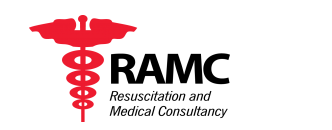Resuscitation vs First Aid… What is the difference?
28-09-2020
We often get asked what is the difference between First Aid and Resuscitation and what is expected to be provided within a clinical settings such as hospitals, GP surgeries, dental practices, occupational health clinics. This is a guide to the difference between the two and how we can help you achieve compliance with our effective advice, support and training programmes.
Resuscitation vs First Aid…. What is required?
It is important to note that in clinical environments there is a need for both resuscitation and first aid! Whilst there is crossover between the two there is a great difference between them (NB This becomes vital when choosing training providers as there are thousands of first aid training providers but very few can deliver resuscitation training to the levels recommended by key national clinical guideline documents).
To elaborate further we have noted below is a little more information on each of these two areas
First Aid
First Aid Training Options
There are generally three levels of first aider;
1. Appointed Persons (AP)
2. Emergency First Aid at Work (EFAW)
3. First Aid at Work (FAW)
Who should be trained?
Depending on your risk assessment, each area of work will require a minimum number of first aiders trained to the different levels shown above. It is important to consider enough first aiders to ensure you meet the minimum standard at all times, therefore shift patterns, staff sickness, staff annual leave should all be considered when calculating the number of first aiders required.
Who should deliver First Aid Training?
First Aid training can be delivered by organisations who follow the guidance from the HSE (they no longer have to be registered with the HSE) and trainers can be (and often are) lay persons who are not registered health care professionals.
What First Aid Equipment should you have?
Depending on your risk assessment, each area of work will require a different first aid kit. This should take into consideration the work undertaken by staff in that area and the number of staff within that area.
Resuscitation
Resuscitation Training Options
There are generally three levels of resuscitation training –
1. Basic Life Support (BLS)
2. Immediate Life Support (ILS)
3. Advanced Life Support (ALS)
Who should be trained?
All staff who work in areas where patients are seen should have an awareness of resuscitation. This includes administrative staff and volunteers. We recommend using the Skills for Health Core Training Framework (http://www.skillsforhealth.org.uk/developing-your-organisations-talent/uk-wide-core-skills-training–framework/) as a guide as to what level staff should trained to, but this should be reflected in your organisations resuscitation policy and training needs analysis.
Who should deliver Resuscitation Training?
Resuscitation training should be delivered by resuscitation officers (who hold a clinical qualification with state registration along with being a current ALS instructor) as they are experienced in managing medical emergencies and resuscitation.
Resuscitation Equipment
Every clinical area should have a base minimum of resuscitation equipment. This must include:
• Oxygen
• Oxygen Mask (100%)
• Bag-Valve- Mask (adult & child)
• Automated External Defibrillator
However, more equipment must be accessible within the clinical vicinity. Therefore, we recommend keeping all of this medical emergency and resuscitation equipment on a purpose built trolley in a purpose built bag (that is easier to carry up and down stairs etc). The number of ‘kits’ required will depend on the size of your establishment. As a general rule this equipment must be no more than 3 minutes from any patient area. For a checklist of what equipment that should be available please visit the resource section of our website (http://localhost/resources/)
Should you require further information on the details discussed in this blog, please contact us for our free and impartial advice. We pride ourselves on delivering a friendly professional service that is second to none in helping to ensure that your organisation is well prepared to deal with emergencies.
For any advice or to ask a question about this blog please contact us at info@ramcltd.comVisit the Resuscitation and Medical Consultancy Limited website for more information on Resuscitation vs First Aid… What is the difference?

